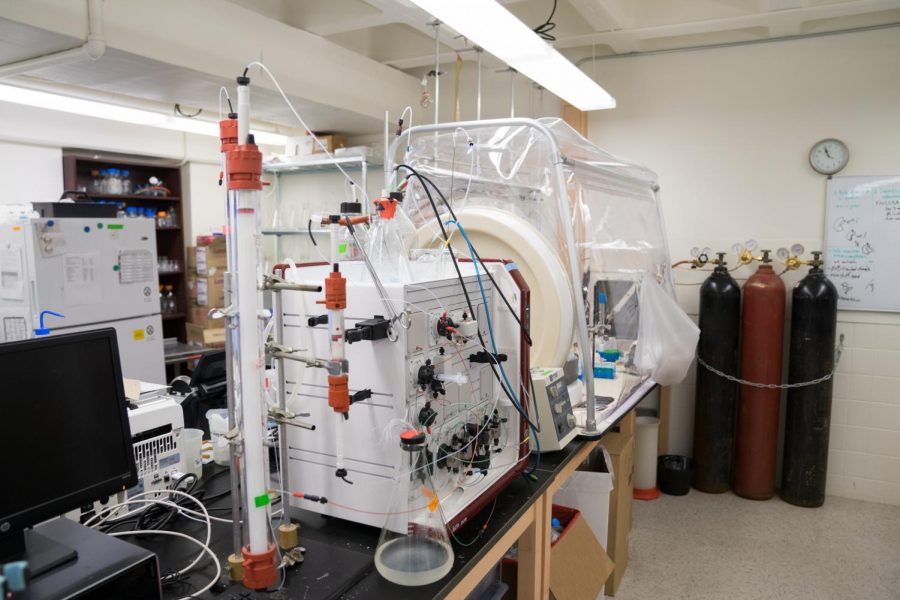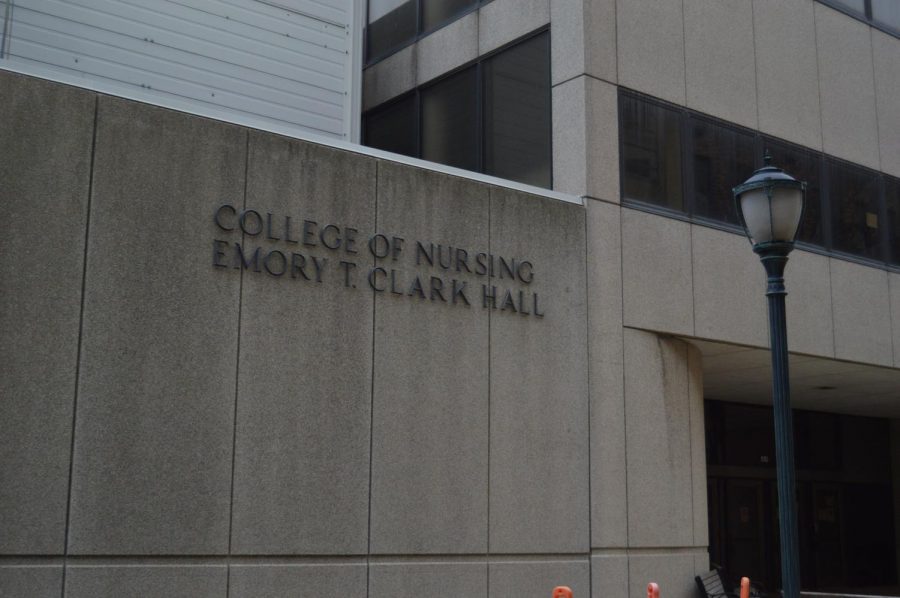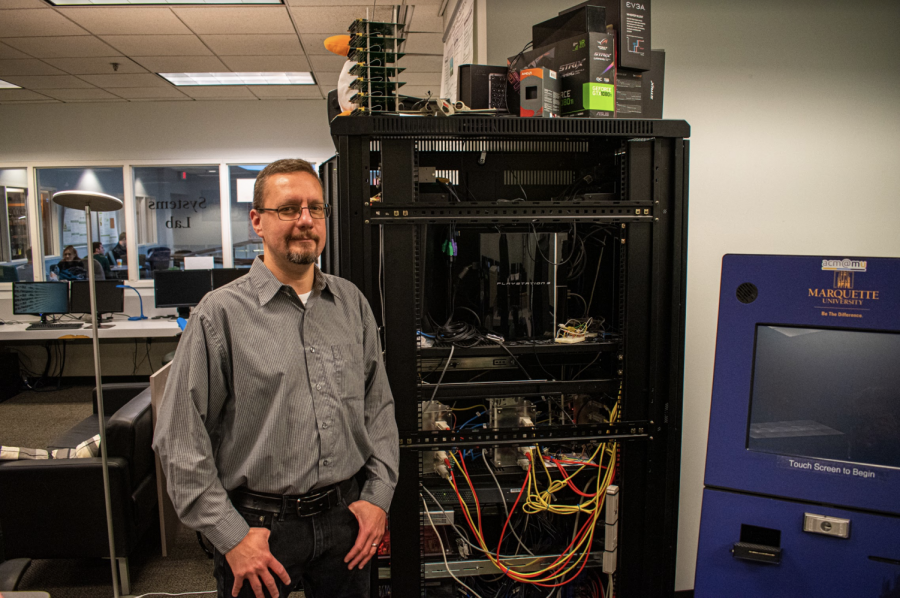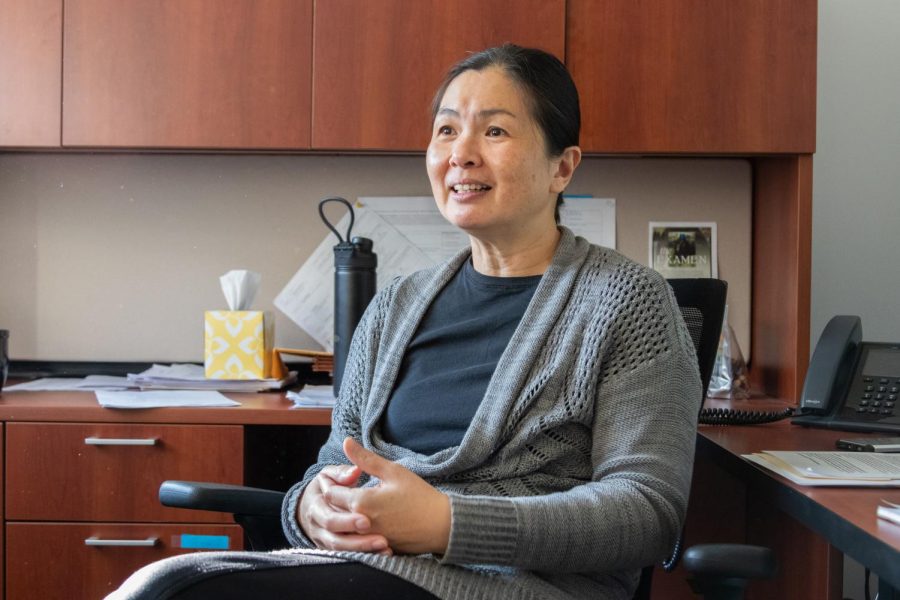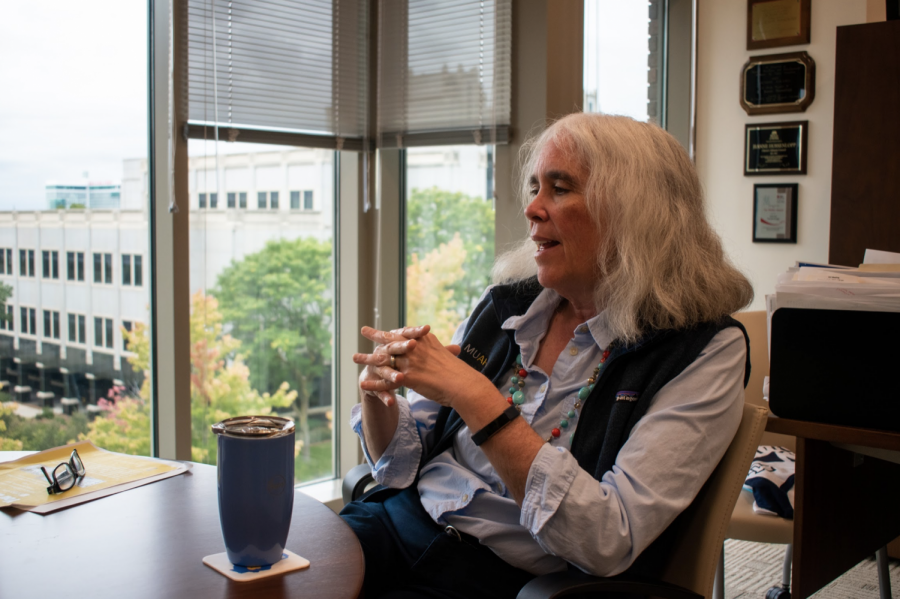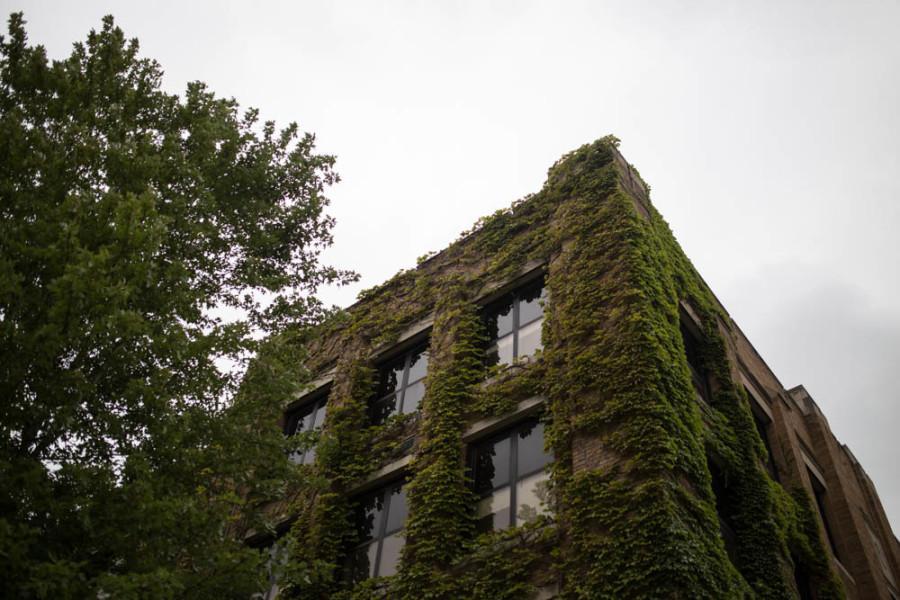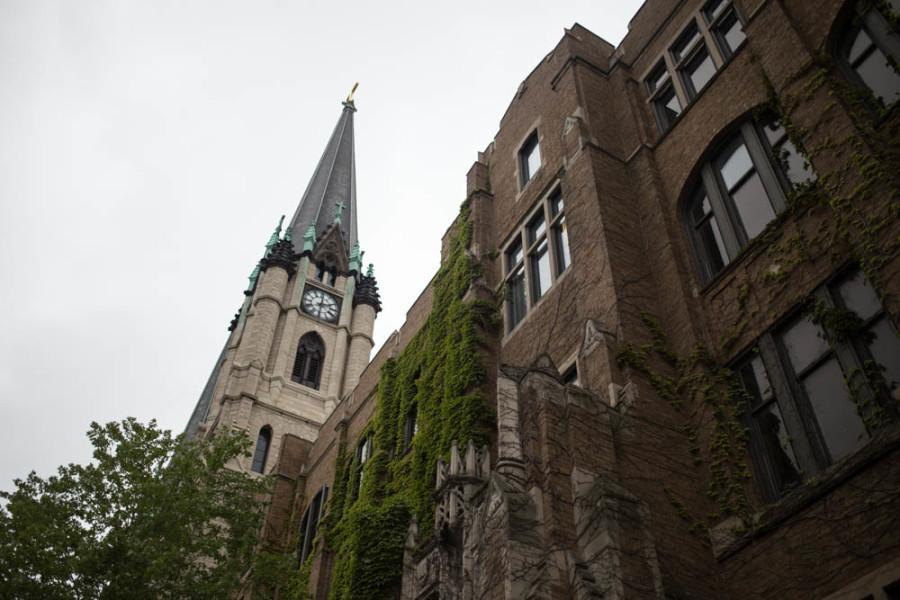The Antony Lab received an almost $1.3 million R01 grant from the National Institutes of Health to further research that could play a role in the treatment of diseases, like cancer. This grant was received in February after the lab wrote a grant proposal, detailing what research they would be using the grant for.
“R01 is one of the original and historic grants of National Institutes of Health,” said Sahiti Kuppa, a graduate student in the College of Arts & Sciences and research assistant. “It is only provided to eligible scientist who contribute a deal to health and medicine.”
The Antony Lab, located on campus in the Wehr Life Sciences building, is a lab within the Department of Biological Sciences at Marquette University. It was established at Marquette in 2015.
“Our goal is to sort of understand basic mechanisms of disease, basic mechanisms of how things happen in the cell, and how proteins actually do these particular activities,” said Edwin Antony, an assistant professor of biological sciences and principle investigator at the lab. “You can drive a car, but you can’t fix it if you don’t know what the engine looks like, or what different components of the engine are. You can’t look at the cell and say why it decided to become an Alzheimer’s cell, or decided to become a cancerous cell, until you understand what’s in the cell, and what’s going on.”
“Our research is mainly based on how enzymes play an important role (in) DNA damage repair mechanism and electron transfer,” Kuppa said.
Antony said that to sustain a scientific lab, they must apply for grants.
“The National Institutes of Health has something like 5 billion dollars per year as a budget and they support research that happens throughout the United States,” Antony said. “Their mission is to fund more of the fundamental health sciences research. They are one of the biggest funders of basic research in disease-related research. ”
The publication in early February of the Antony Lab’s paper “Dynamics and selective remodeling of the DNA-binding domains of RPA” in the peer-reviewed scientific journal “Nature Structural and Molecular Biology,” laid the groundwork for the lab receiving the grant. It was also featured on the cover of this journal.
“(The grant) was obtained based on the promising work published recently, where we revealed novel characteristics of a key protein in DNA repair and replication, Replication Protein A,” said Elliot Corless, a graduate student in the College of Arts & Sciences and research assistant at the lab.
“Professors involved in research regularly apply to Federal funding agencies requesting funding to perform research in their particular field. The entire process is highly competitive,” Nilisha Pokhrel, a graduate student in the College of Arts & Sciences and a research assistant in the lab, said.
“The grant (proposal) was mainly focused on how enzymes help in combating different errors on DNA metabolisms, environmental toxins and related diseases,” Kuppa said. “Over the years the lab has established a very strong techniques to extensively study such dynamic mechanisms and with this grant we are all set to unravel the mysteries of a DNA damage repair pathways.”
Pokhrel said with the grant, the lab will study biochemical mechanisms by which different proteins involved in a particular pathway of DNA repair work in concert to repair damaged DNA.
“The more we learn about how these repair proteins function, the better chance we have of developing single-molecule cancer therapeutics,” said Emma Tillison, a junior in the College of Health Sciences and a research assistant at the Antony Lab.
The recent grant also allows the lab to do a lot of other things.
“The lab is now in full swing, fully funded,” Corless said. “(This) allows hiring of new personnel, including post-docs, additional PHD students, payed undergraduates, conference travel and new lab equipment for new assays, as well as just having stability to perform more bold and adventurous experimentation in general.”
“The first thing we will be able to do is to hire highly skilled post-doctoral research fellows with particular skill sets to conduct experiments,” Pokhrel said. “We will buy more equipment for research. With more hands, minds, and types of equipment conducting research, we will be able to investigate different research questions in parallel.”
“With this grant we can have talented post-doctoral research fellows with great skill in single molecule, cell biology and anaerobic biochemistry, improve our lab facilities and can push our boundaries to do more amazing research,” Kuppa said.
Many of the researchers expressed their excitement in the opportunities provided by the grant.
“I’m most excited about the freedom we now have to explore basically any route we wish to probe life-critical questions in the future,” Corless said. “We are no longer bound by monetary constraints, and I can’t wait to get more personnel.”
“So far our lab has been able to establish a strong background of RPA and I am excited to study about the effect of post translational modification on RPA-DBD remodeling and developing potential drug targets for cancer,” Kuppa said.
“I am most excited about this research helping cancer patients down the line,” Tillison said.

